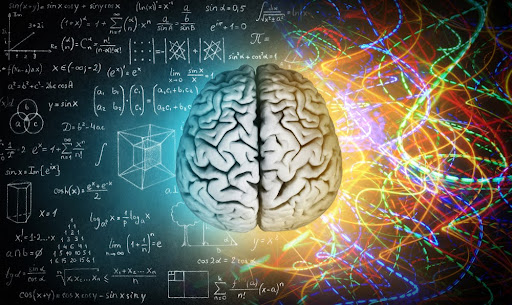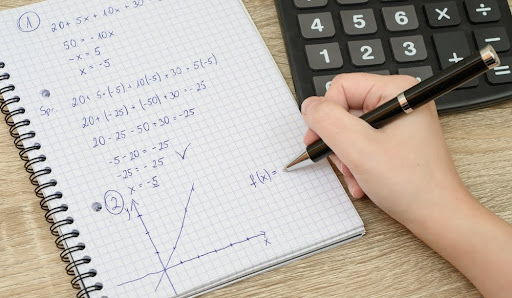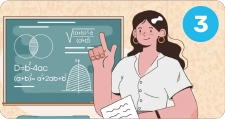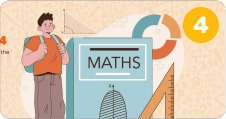
Mathematics is not merely about numbers and equations—it is reasoning, problem-solving, and logic. Building conceptual understanding and developing habits of mind in mathematics has the potential to get students past rote memorization and to a deep understanding of mathematical concepts. This blog discusses effective practices to develop these critical skills in students.
What is Conceptual Understanding in Mathematics?

Conceptual understanding in math is a deep understanding of mathematical ideas, connections, and structures as opposed to the mere capability to perform procedures. Students who possess strong conceptual understanding are able to:
- Use mathematical ideas in different contexts.
- Connect different subjects.
- Describe their reasoning and strategy for solving problems.
Acquire flexible thinking ability to solve unfamiliar problems.
Importance of Building Conceptual Understanding
Strong conceptual foundation allows students to:
- Establish long-term retention of mathematical concepts.
- Enhance their problem-solving skills.
- Enhance their critical thinking and analytical skills.
- Develop mathematical creativity through applying concepts in new contexts.
Recommended Reading: Five Benefits Why Kids Should Study Mathematics
Effective Strategies to Develop Conceptual Understanding

1. Utilize Visual Representations
Diagrams, graphs, number lines, and models assist students in visualizing mathematical ideas. Tools such as:
- Base-ten blocks to learn about place value
- Fraction strips to perform operations on fractions
- Graphs to analyze functions and data
2. Foster Multiple Solution Methods
Instead of emphasizing one solution to a problem, challenge students to consider multiple approaches. For instance:
- Mental calculation versus written computation
- Algebraic and graphical solution of equations
3. Connect Mathematics to Real-World Applications
Making mathematics relevant to real life assists learners in understanding its application. Examples are:
- Budgeting and personal finance
- Engineering and architecture computation
- Statistical analysis in science and sports
4. Promote Inquiry-Based Learning
Nurture curiosity by asking questions, probing patterns, and constructing their own knowledge through discovery and exploration activities.
5. Cultivate a Growth Mindset
Students need to see challenges as chances for learning instead of barriers. Foster persistence through the promotion of effort, practice, and problem-solving skills.
Recommended: Exploring the Relationship between Robotics and Mathematics in Children’s Learning
Habits of Mind in Mathematics
Along with conceptual knowledge, students must acquire productive habits of mind to be successful in mathematics. These are:
1. Persistence and Perseverance
Mathematics typically consists of challenging problems that necessitate persistent effort. Having students work through a problem and persist in their effort helps build resilience and determination.
2. Logical Reasoning
Building the ability to examine patterns, justify answers, and reason critically enhances mathematical reasoning abilities.
3. Precision and Accuracy
Urging students to be cautious and precise in their calculations, measurements, and explanations guarantees mathematical communication clarity.
4. Reflection and Self-Assessment
Students need to review their problem-solving techniques regularly and pinpoint areas for improvement.
Conclusion
Building conceptual knowledge and habits of mind in math is essential for the development of a deeper understanding of the subject and problem-solving skills. With the use of visual aids, practical applications, inquiry-based instruction, and a growth mindset, teachers can ensure students develop a solid mathematical foundation. Promoting persistence, logical thinking, accuracy, and self-monitoring further instills an appreciation of mathematics that goes beyond the classroom.
By giving these strategies a high priority, teachers can equip students to be critical thinkers, problem solvers with confidence, and lifelong learners of mathematics.
Want to excite your child about math and sharpen their math skills? Moonpreneur’s online math curriculum is unique as it helps children understand math skills through hands-on lessons, assists them in building real-life applications, and excites them to learn math. You can opt for our Advanced Math or Vedic Math+Mental Math courses. Our Math Quiz for grades 3rd, 4th, 5th, and 6th helps in further exciting and engaging in mathematics with hands-on lessons.












